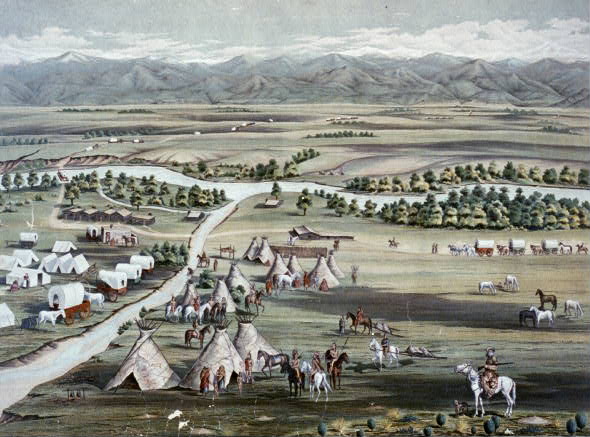DCPA NEWS CENTER
Enjoy the best stories and perspectives from the theatre world today.
Enjoy the best stories and perspectives from the theatre world today.
 A land acknowledgement is a traditional practice of many Native nations that has been used for centuries. Land acknowledgements are increasingly used by Native and non-Native individuals and groups to recognize Indigenous Peoples as the original stewards of the lands upon which we now reside. Before many events, a speaker offers a land acknowledgement on behalf of those in attendance.
A land acknowledgement is a traditional practice of many Native nations that has been used for centuries. Land acknowledgements are increasingly used by Native and non-Native individuals and groups to recognize Indigenous Peoples as the original stewards of the lands upon which we now reside. Before many events, a speaker offers a land acknowledgement on behalf of those in attendance.
The Smithsonian’s National Museum of the American Indian explains further:
After millennia of Native history and centuries of displacement and dispossession, acknowledging original Indigenous inhabitants is complex. Many places in the Americas have been home to different Native Nations over time, and many Indigenous people no longer live on lands to which they have ancestral ties. Even so, Native Nations, communities, families, and individuals today sustain their sense of belonging to ancestral homelands and protect these connections through Indigenous languages, oral traditions, ceremonies, and other forms of cultural expression. Our acknowledgment is intended to recognize the Indigenous peoples who have lived where we now work over the long span of human history and the large contemporary Native population that lives in this region.
In developing a land acknowledgement, local Native Nations can offer valuable input into how they want to be recognized. Additionally, land acknowledgements should be delivered with genuine respect for and support of Indigenous inhabitants as these important words can open doors to collaboration, accountability, and meaningful relationships between Native and non-Native peoples.
The Denver Center for the Performing Arts is grateful to Tariana Navas-Nieves at Arts & Venues for sharing insights from her work with Ernest House, Jr., former Executive Director of the Colorado Commission of Indian Affairs in the development of our land acknowledgement:
The Denver Center for the Performing Arts honors and acknowledges that it resides on the traditional and unceded territories of the Ute, Cheyenne, and Arapaho Peoples. We also recognize the 48 contemporary Indigenous Tribes and Nations who have historically called Colorado home.
We pay our respects to Elders past, present, and future, and to all those who have stewarded the land and water for generations.
May this acknowledgment express the DCPA’s commitment to grow and deepen its relationships with the vibrant Indigenous communities who continue to thrive and uphold their sacred relation to this land.
